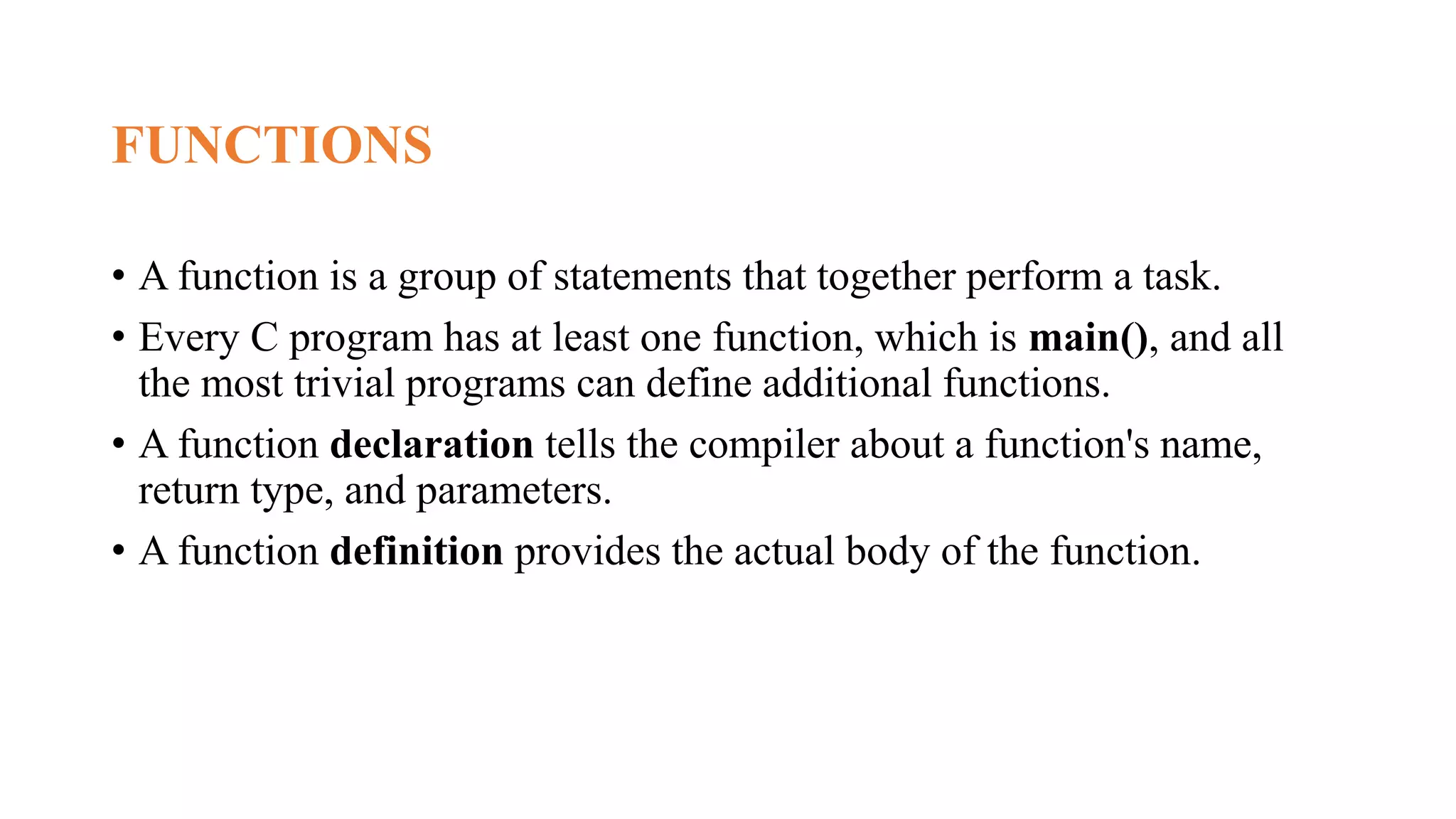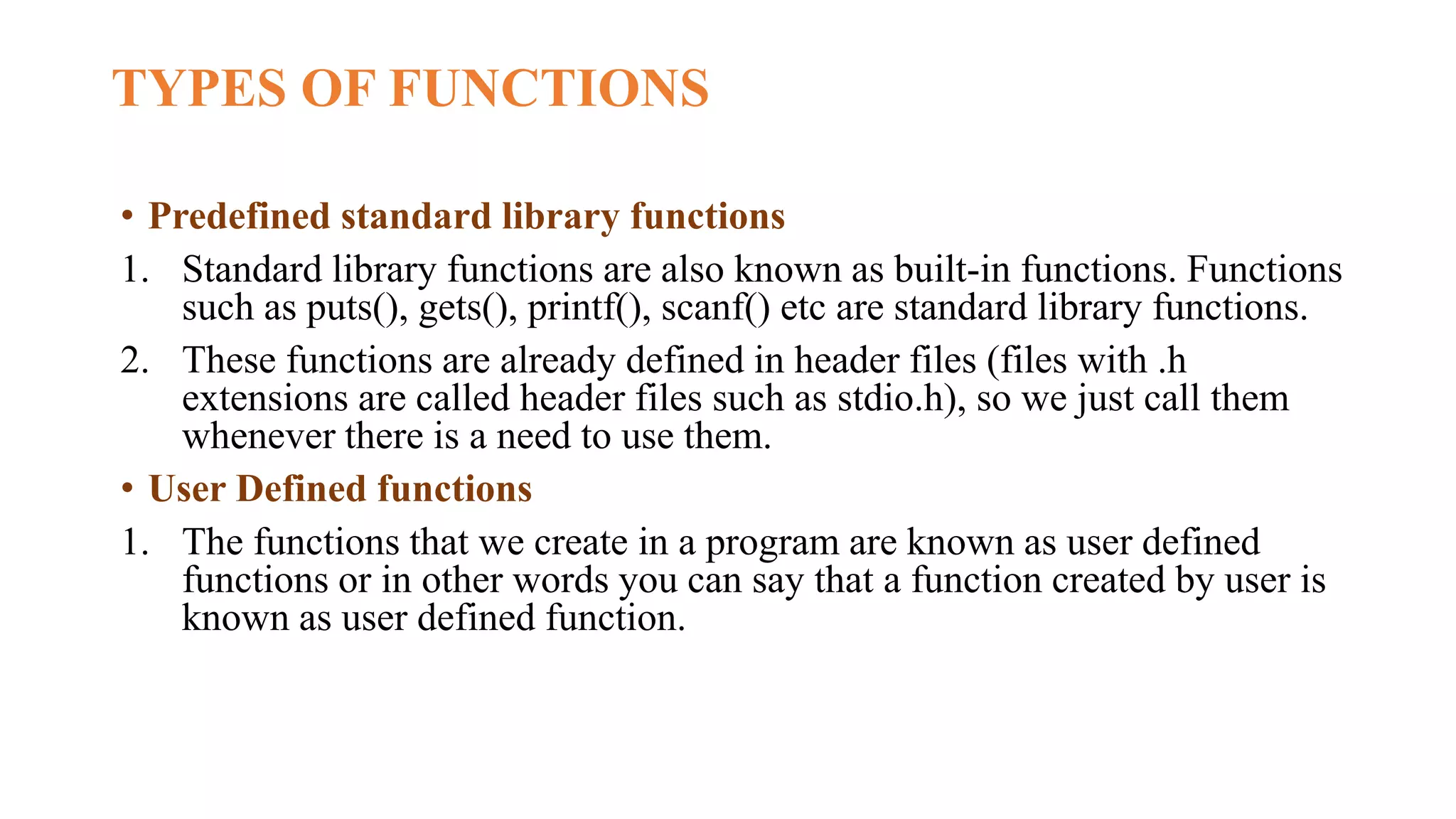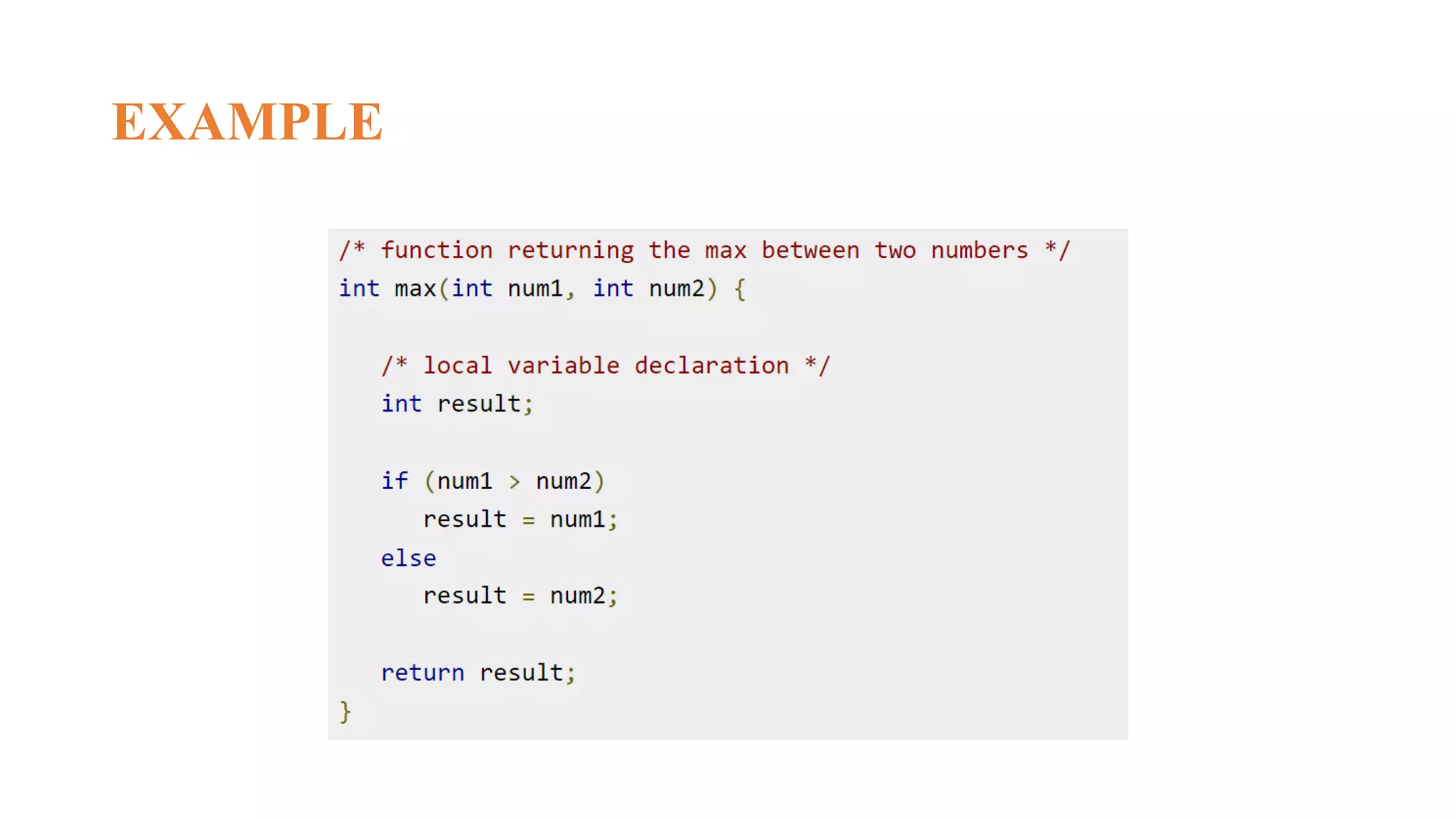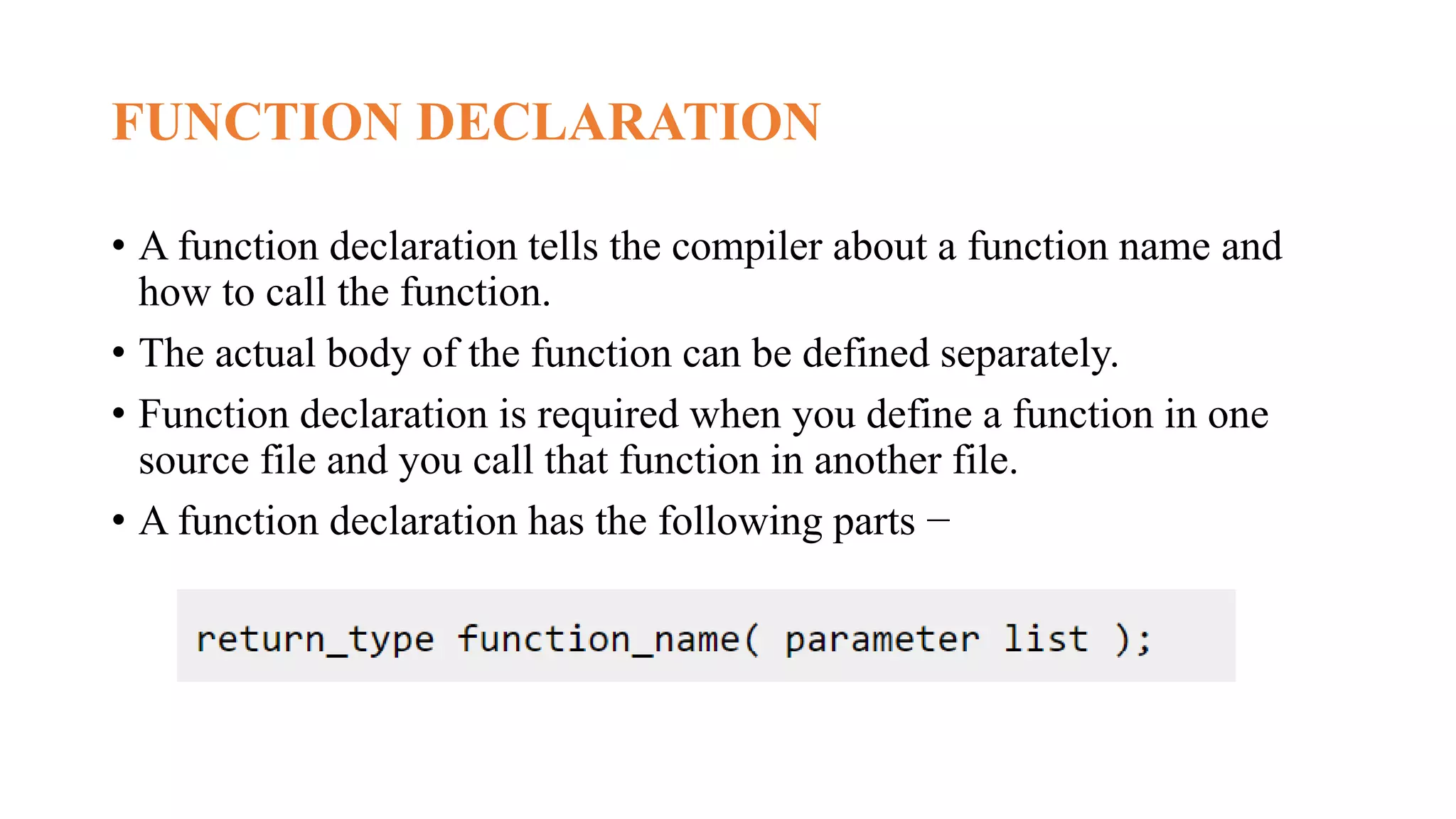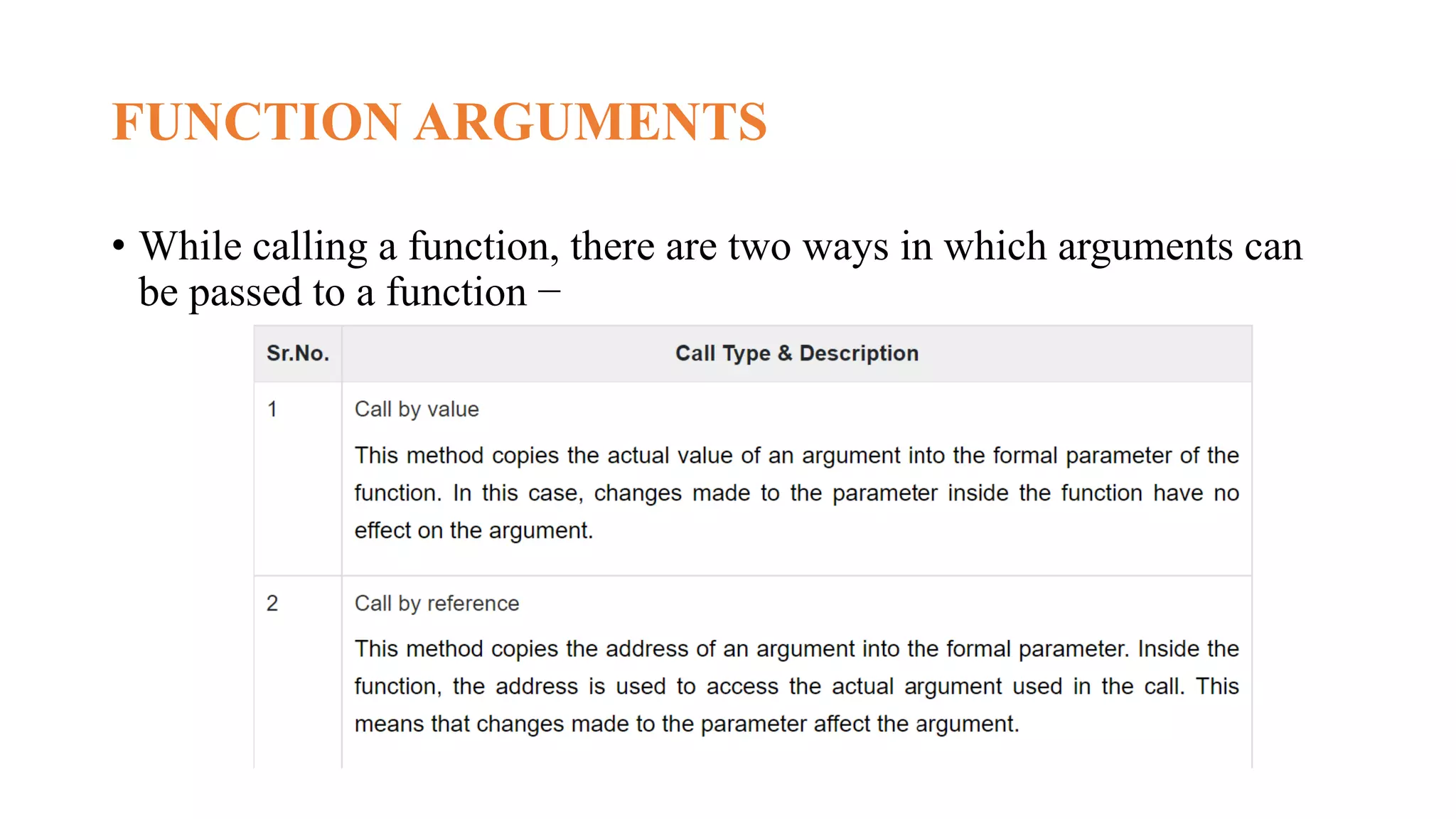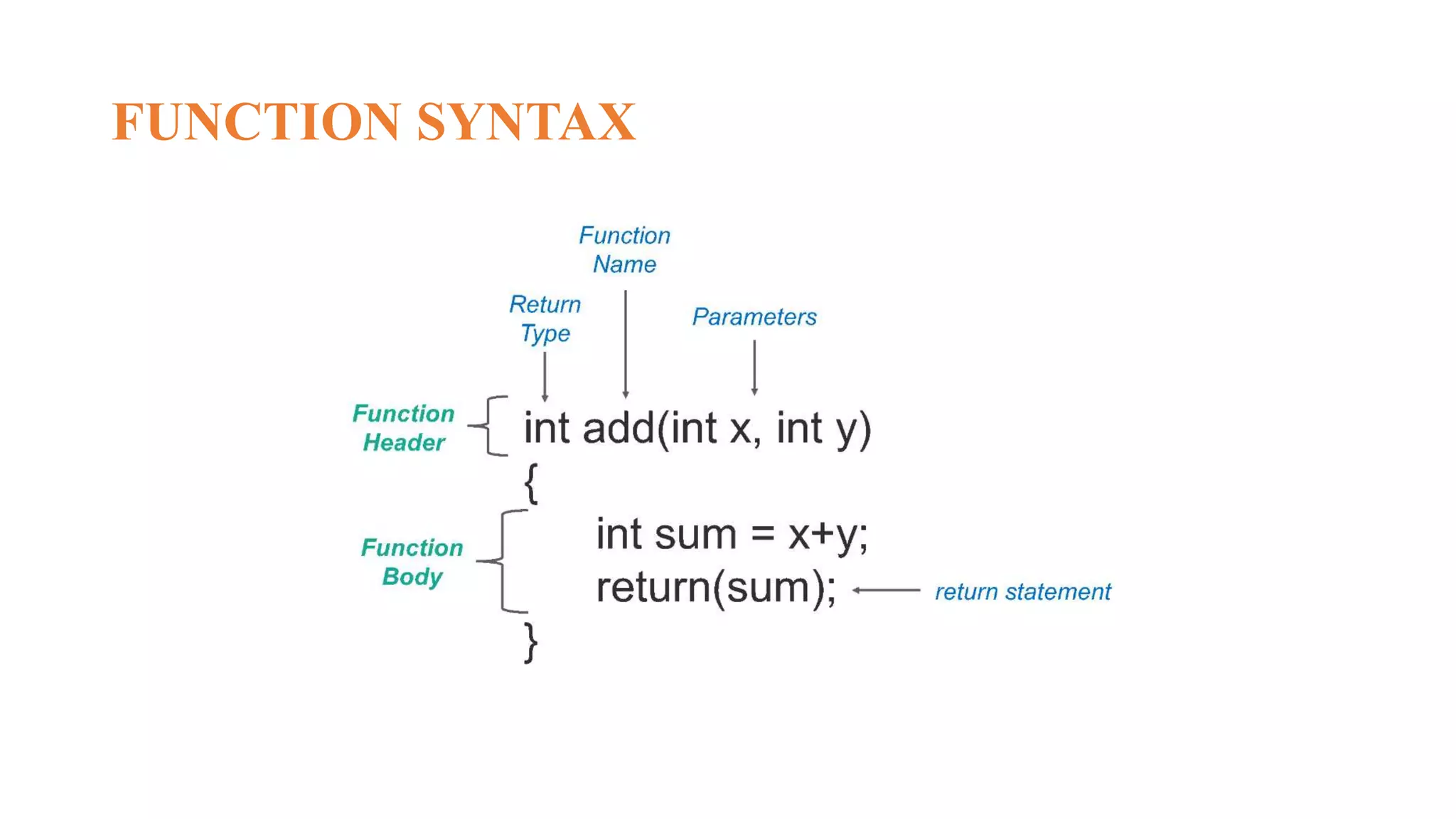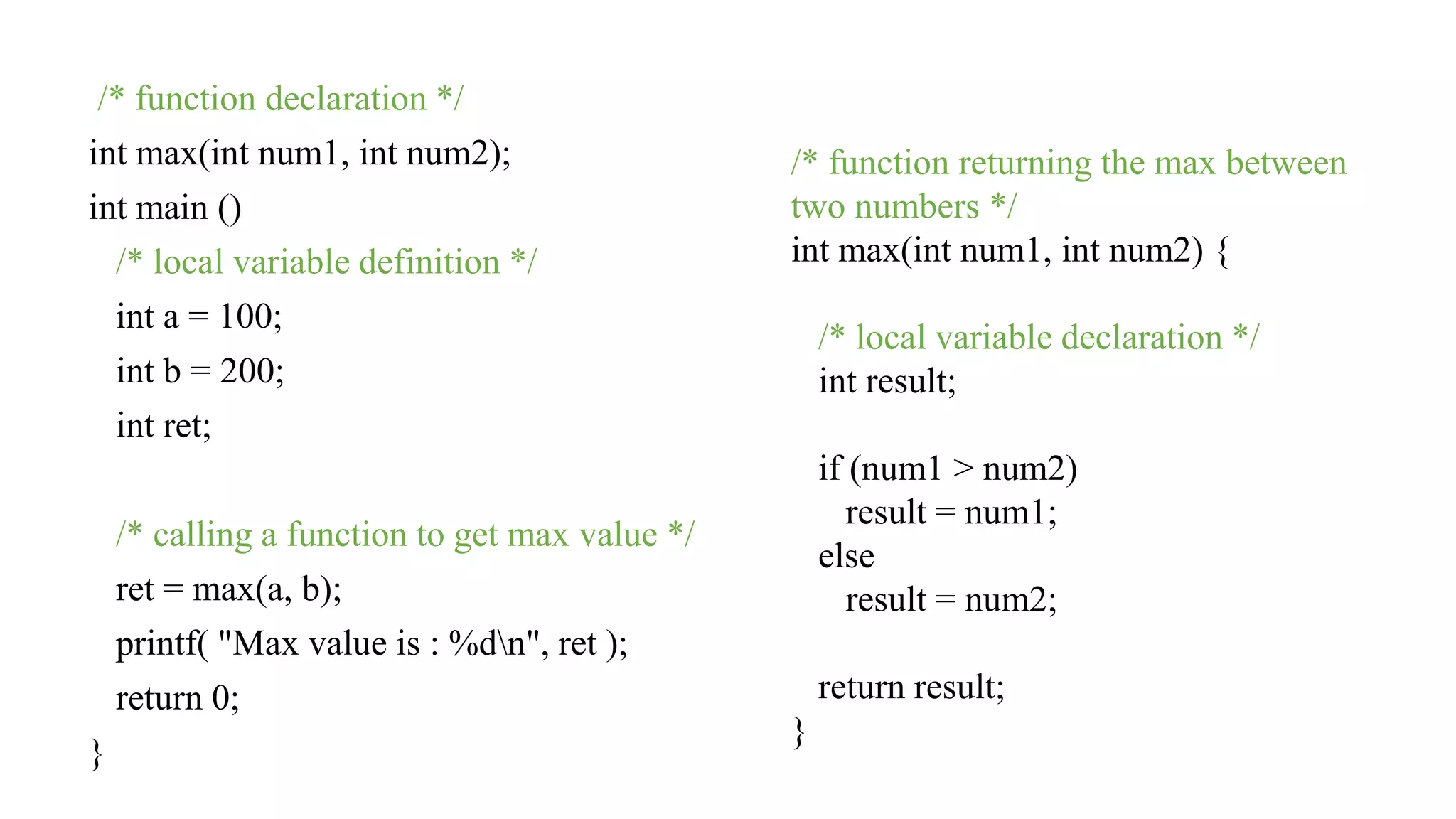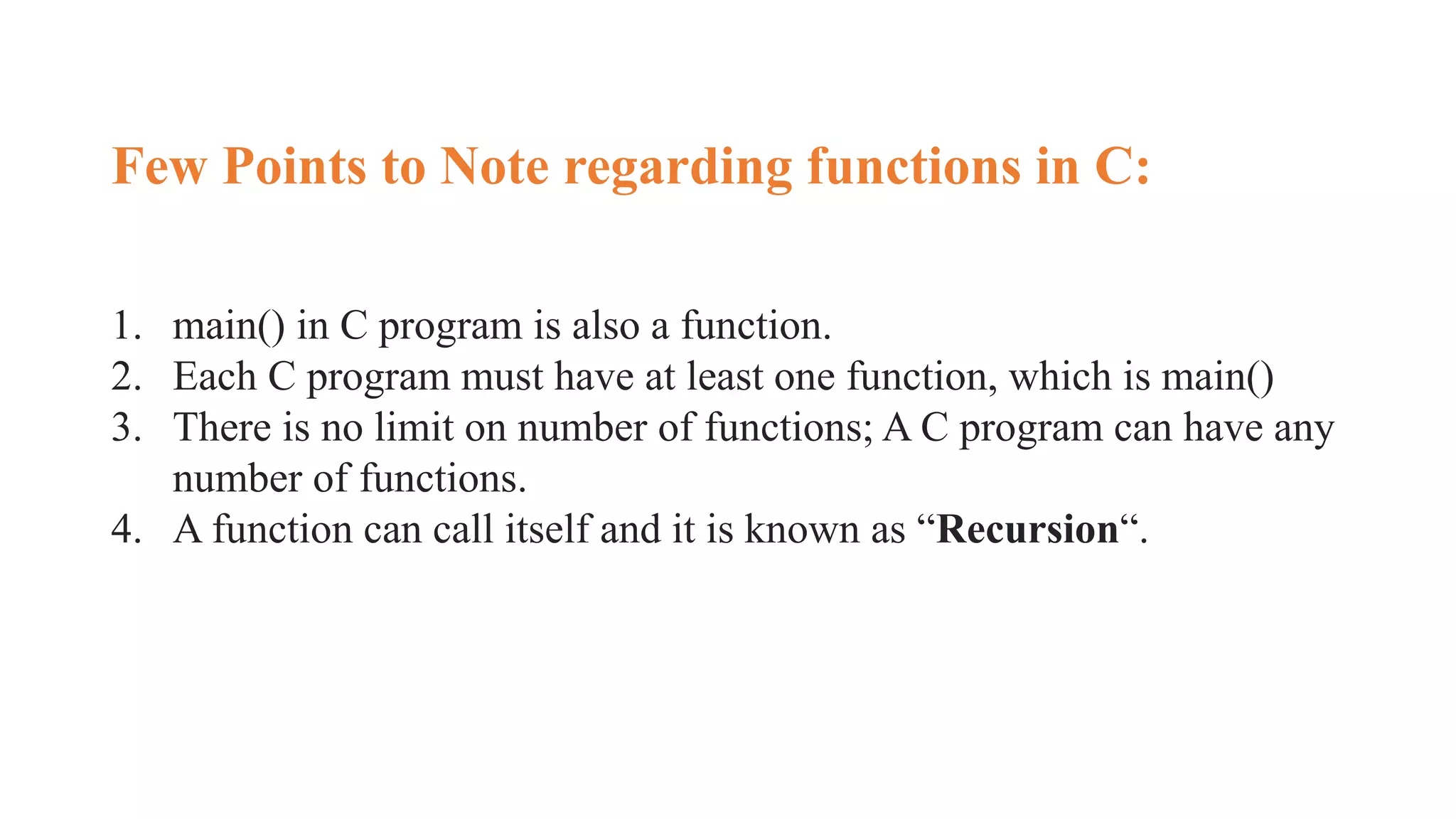Functions in C allow programmers to organize code into reusable blocks to perform tasks. There are two types of functions: predefined standard library functions and user-defined functions. A function definition includes a return type, function name, parameters, and function body. Functions are called to execute their code and return program control back to the main program. Arguments can be passed into functions either by value or by reference.

